Program Co-Directors:
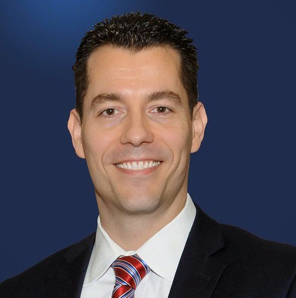
Xander H. Wehrens, M.D., Ph.D. (contact co-PD)
Dr. Wehrens is a tenured Professor in the Departments of Integrative Physiology and Medicine, the Quigley Endowed Chair in Cardiology, and the Director of the Cardiovascular Research Institute. He has almost 20 years of experience training and mentoring 100 trainees in his laboratory. He served as associate director of a prior cardiovascular physiology training grant at Baylor for 15 years and has been an associate director of the Medical Scientist Training Program since 2009. His research focuses on the genetic and molecular basis of cardiac arrhythmias, cardiomyopathies, and heart failure using a wide range of assays in human tissue samples/ cell lines, mutant mouse models, isolated cardiac myocytes, and single channel studies. His findings have resulted in 2 start-up companies that develop small molecule therapies for heart disease. Moreover, he is actively working with a pharmaceutical company on preclinical and phase 1 clinical trials involving gene therapy for inherited heart disease.

Damian Young, Ph.D.
Dr. Young is the Robert A. Welch Chair in Science and a tenured Associate Professor of Pharmacology & Chemical Biology, and Pathology, and Director of the Center for Drug Discovery. Dr. Young received a BS in chemistry from Howard University and then worked as a process chemist at Trimeris Inc. on the HIV drug enfuvirtide. He received a PhD in synthetic organic chemistry at North Carolina State University and subsequently pursued postdoctoral studies in the lab of Dr. Stuart Schreiber at Harvard University and the Broad Institute. Dr. Young’s research is broadly aimed at generating small molecules as therapeutic agents in a variety of disease areas. He has developed platforms based on Fragment-Based Drug Discovery (FBDD) and DNA-Encoded Chemistry Technology (DEC-Tec) aimed at elucidating potent and selective targets to disease related targets. His current efforts are focused on small molecules targeting G-protein coupled receptors (GPCRs) and nuclear receptors using novel chemical and screening approaches. He is a co-founder and scientific advisor of Deliver Therapeutics, whose focus is on developing modulators to inhibit protein-protein interactions involved in disease. He is also the Scientific Director of Blue Square Discoveries, a joint corporation between Deerfield Management (New York, NY) and Baylor which is dedicated to advancing innovative science to the clinic.
Other Faculty Mentors
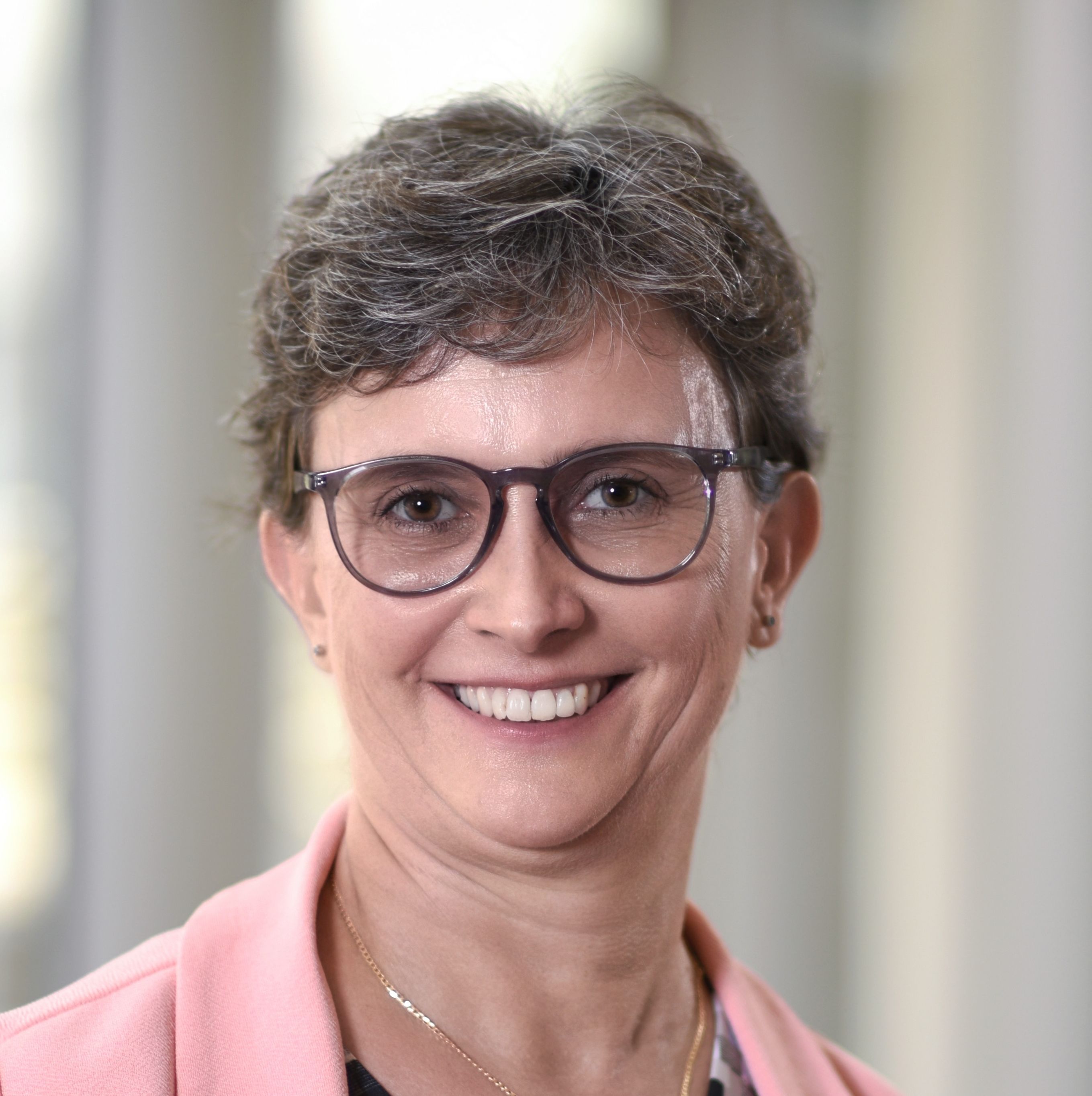
Christine Beeton, Ph.D.
Christine Beeton's lab is interested in all aspects of translational research surrounding autoimmune and other chronic inflammatory diseases. Our expertise includes the isolation and culture of primary human and rodent cells (lymphocytes, monocyte/macrophages, and other immune cells; fibroblast-like synoviocytes; myoblasts), functional assays ex vivo (proliferation, production and secretion of cytokines, chemokines, proteases, migration, invasion, cytotoxicity, and more) and in vivo (trafficking, production and secretion of cytokines, chemokines, proteases, and more), patch-clamp electrophysiology on excitable and non-excitable cells for identification of ion channels and pharmacology of novel ion channel modulators, and animal models of inflammatory diseases in rats and mice (active and adoptive delayed type hypersensitivity, active and adoptive acute experimental autoimmune encephalomyelitis, chronic-relapsing experimental autoimmune encephalomyelitis, collagen-induced arthritis, pristane-induced arthritis, and adjuvant-induced arthritis).
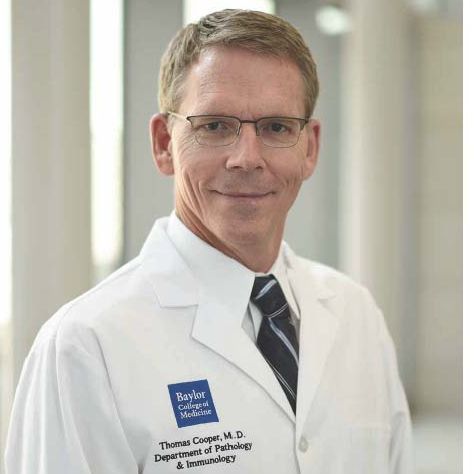
Thomas Cooper, M.D.
Dr. Cooper's research focuses on myotonic dystrophy, the most common cause of adult-onset muscular dystrophy. At least 50% of individuals affected by type-1 myotonic dystrophy has cardiac involvement, primarily conduction abnormalities and life-threatening arrhythmias, that cause 30% mortality of affected individuals. The Cooper laboratory uses human tissue samples and mouse model to study the role of RNA binding proteins in the pathogenesis of myotonic dystrophy. Dr. Cooper has trained numerous PhD students and postdoctoral fellows, most of whom are still active in biomedical research.

William Decker, Ph.D.
William Decker’s lab research focuses on the application of dendritic cells in immunotherapies against cancer. Immune evasion is a hallmark of cancer and learning how dendritic cells prime anti-cancer responses is pivotal to harnessing their therapeutic potential. We utilize various research methods to understand how dendritic cells regulate gene expression, use critical molecules to instruct the immune system, prime other immune cells like cytotoxic T cells, and strategies to overcome the immunosuppressive tumor microenvironment.
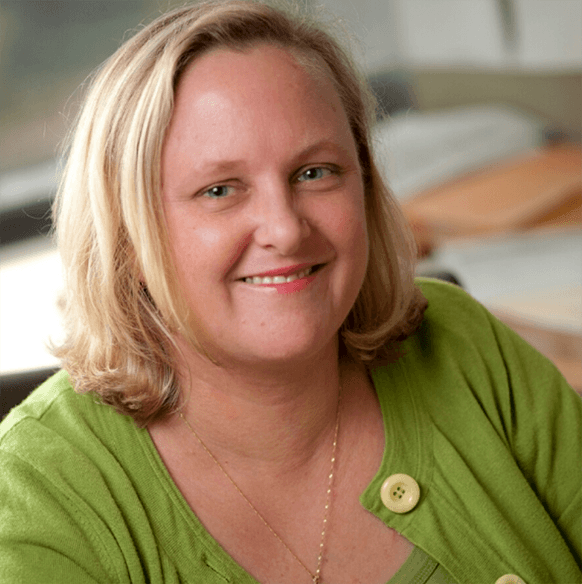
Jane Grande-Allen, Ph.D.
Jane Grande-Allen’s research applies engineering analysis to understand and fight heart valve disease. This involves mechanical testing, biochemical measurements, and microstructural analysis of critical components found in the extracellular matrix (ECM) that makes up cardiac tissue. Her studies into the basic and applied physiology of heart valve tissue have shown that the ECM – collagen, elastin, glycosaminoglycans and proteoglycans – forms an intricate network of connective tissue that is influenced by valvular function, growth, and abnormalities.

Susan Hamilton, Ph.D.
Dr. Hamilton's research focuses on the mechanisms underlying alterations in cardiac and skeletal muscle function associated with human diseases and the development of new therapeutic interventions. Dr. Hamilton uses mouse models of inherited myopathies to gain new insights into the roles of ryanodine receptor and L-type calcium channels in excitation-contraction coupling. Dr. Hamilton’s laboratory also studies the role of epigenetics in the penetrance, expressivity, and discordance of diseases of excitation-contraction coupling. Dr. Hamilton has trained 12 graduate students and 38 postdocs, most of whom have continued in science, some in leadership roles.
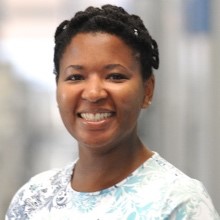
Kathryn Jones, DVM, Ph.D.
Dr. Jones' primary research focuses on inflammatory, fibrotic, and metabolic pathways involved in the pathogenesis of chronic Chagasic cardiomyopathy. Chagas disease is caused by the protozoal parasite Trypanosoma cruzi. Persistence of parasites in the heart causes a persistent inflammation and progressive fibrosis with metabolic perturbations, leading to a spectrum of cardiac disorders. The goal of the Jones lab is to develop new immunotherapeutic treatments that address the deleterious host responses causing cardiac disease progression by elucidating the mechanisms of inflammation and fibrosis.

Jason Karch, Ph.D.
Dr. Karch’s research focuses on mechanisms underlying pathological cell death, including regulated necrotic pathways that are engaged during cardiac ischemic injuries. His laboratory utilizes a combination of unbiased screening approaches to identify novel regulators of necrotic cell death and targeted approaches to interrogate cell death pathways. A major goal is to identify novel cell death mediators that can be therapeutically targeted to prevent cardiomyocyte death during a myocardial infarction. Dr. Karch’s laboratory is an excellent training environment for the next generation of scientists by instilling and cultivating independence in all of them.
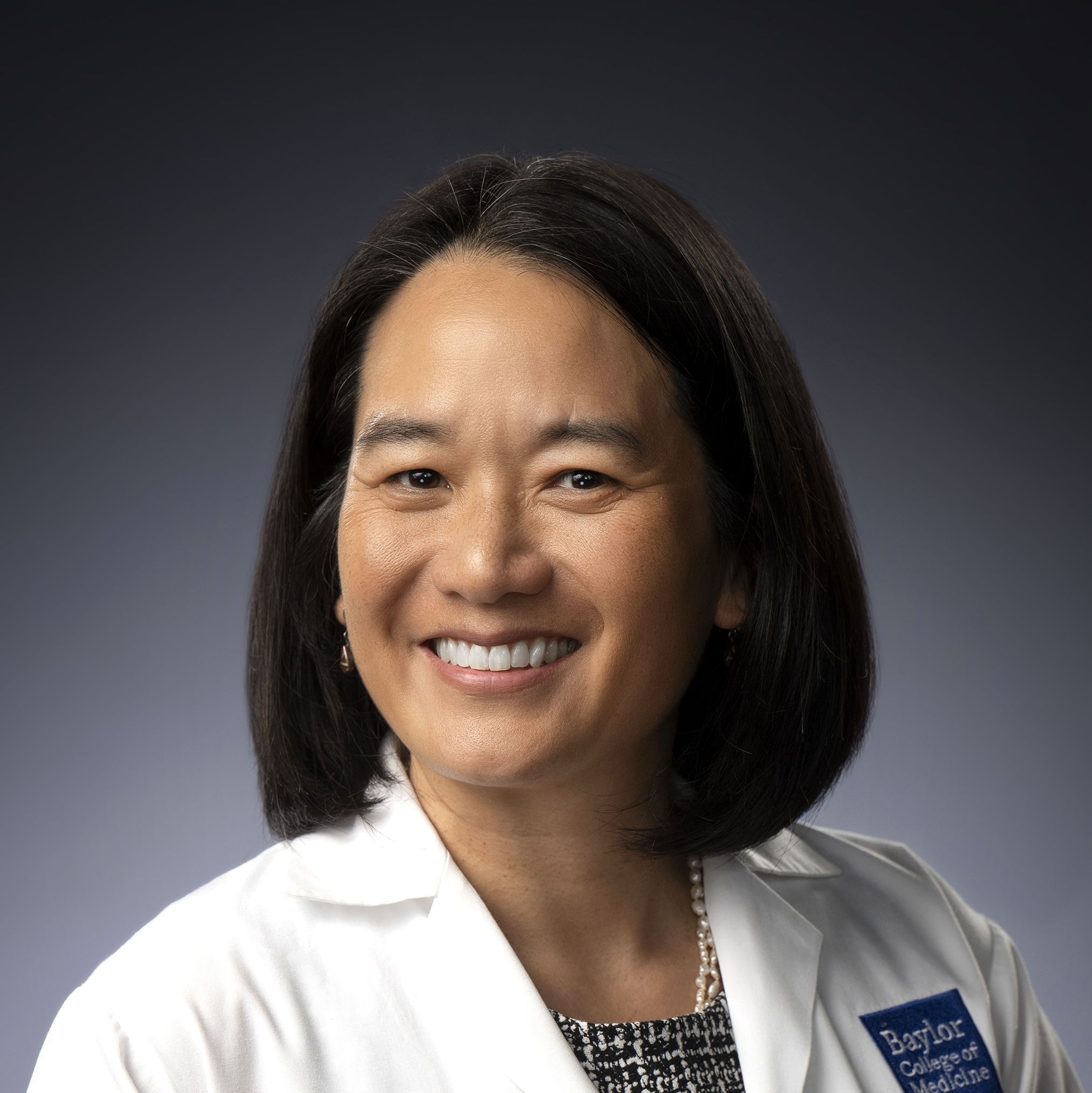
Katherine King, M.D., Ph.D.
Dr. King’s research focuses on the molecular mechanisms by which inflammation affects blood and immune cell production by hematopoietic stem cells (HSCs). The laboratory has demonstrated that HSCs are activated to divide and differentiate in response to systemic inflammation and that common mutations affecting clonal hematopoiesis such as in the DNA methyltransferase DNMT3A affect HSC responses to inflammation. Current projects are focused on the impact of epigenetic modifications on HSC responses to inflammation, and how these molecular responses affect clonal evolution, cancer and ischemic heart disease development, and immunity. Dr. King is co-director of the MSTP at BCM and has trained numerous pre- and postdoctoral trainees.

William Lagor, Ph.D.
Dr. Lagor's research focuses on lipid metabolism and translational approaches to treat lipid disorders. His basic science interests are the physiological regulation of the mevalonate pathway, which is responsible for de novo cholesterol biosynthesis. The laboratory has a strong translational component to develop adeno-associated viral (AAV) vectors for gene delivery and genome editing. His lab develops new technologies to address challenges in gene therapy, including: the problem of pre-existing immunity to the Cas9 nuclease, self-deleting AAV-CRISPR systems to limit Cas9 expression, custom AAV capsids targeting the vasculature, as well as methods for targeted insertion of therapeutic transgenes in the liver.
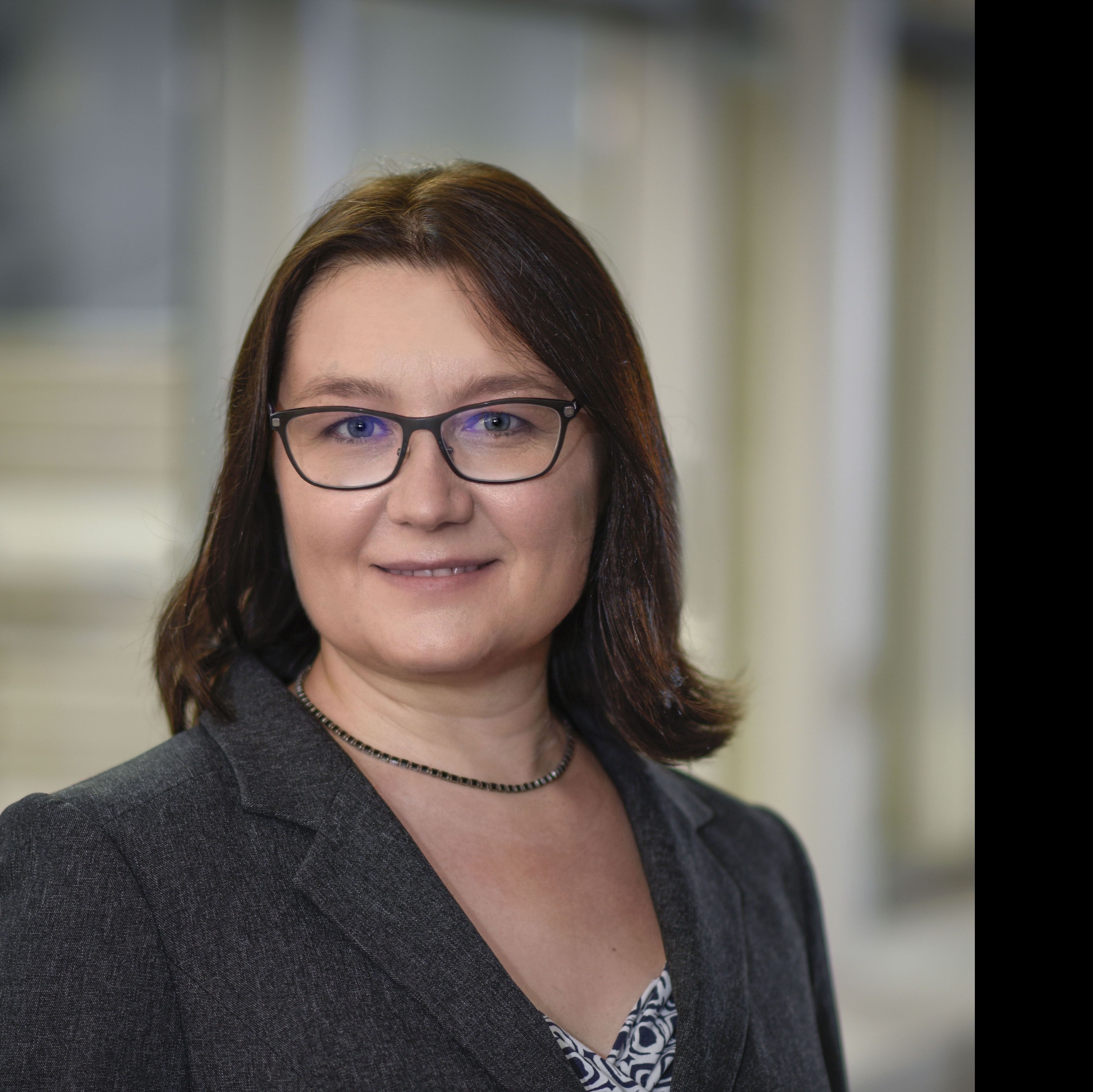
Irina V. Larina, Ph.D.
Dr. Larina’s research focuses on the biomechanics of embryonic CV development through technological advancement in biophotonics. Her laboratory currently investigates how mechanical stimuli of cardio dynamics and blood flow are linked to molecular/genetic changes during early cardiac differentiation. Dr. Larina plays a key role in graduate student and postdoctoral education at BCM. In addition to lecturing in several didactic courses, Dr. Larina teaches a grant writing course to graduate students and postdocs, which resulted in high fellowship success rates. Dr. Larina mentored over 40 high-school, undergraduate, graduate, and postdoctoral trainees, the majority of whom continue in science-related careers, including some who are now successful NIH funded tenure-track faculty.

Na Li, Ph.D.
Dr. Li's research focuses on elucidating the molecular mechanisms of atrial fibrillation (AF). Her laboratory is focused on establishing a mechanistic link between clinically relevant risk factors and the pathogenesis of AF, in particular, how the inflammasome complex contributes to the AF development. Various cell type-specific knock-in or knockdown mouse models are used to delineate the contributions of different types of cardiac and immune cells to AF. Therapeutics targeting the inflammasome pathway are being evaluated for their anti-AF efficacy. Dr. Li has trained one graduate student and 8 postdocs, all of whom continued to work in research.
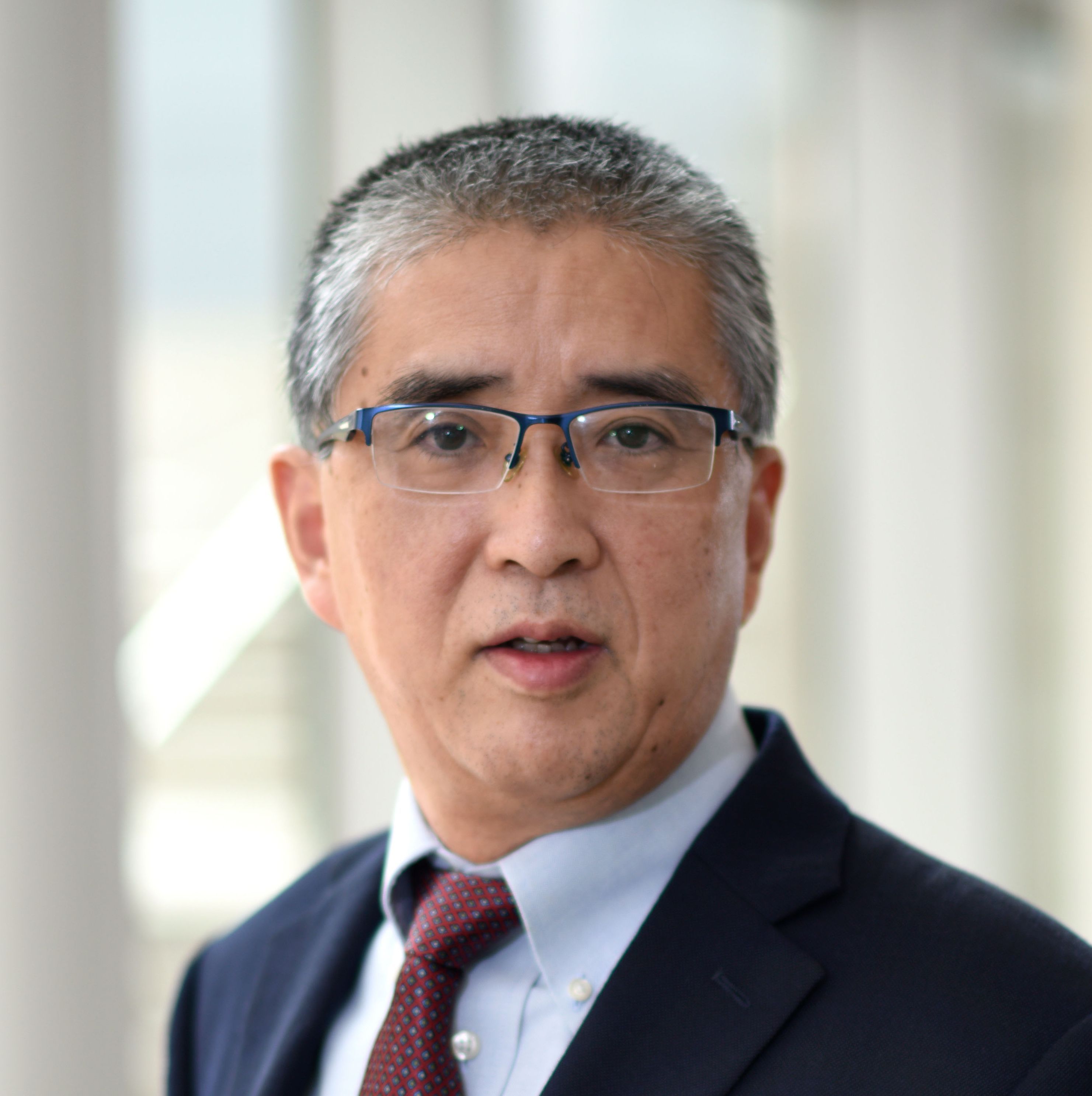
Wei Li, Ph.D.
Dr. Wei Li's research focuses on two interrelated areas: ligandomics and novel anti-angiogenic therapies. He invented ligandomics as the only available technology to globally map cell-wide ligands and applied comparative ligandomics to live mice with or without vasculopathies to systematically profile disease-selective endothelial ligands as therapeutic targets. His laboratory discovered secretogranin III (Scg3) as a disease-restricted angiogenic factor and developed Scg3-neutralizing monoclonal antibodies and related humanized antibodies for clinical translation to treat diabetic retinopathy, choroidal neovascularization, and retinopathy of prematurity. The lab is also expanding ligandomics to other vascular diseases beyond the eye.

James Martin, M.D., Ph.D.
Dr. Martin's studies how developmental pathways are connected to adult tissue homeostasis and regeneration. His group investigates the Hippo, Wnt, and Bmp-signaling pathways for developmental and regenerative capabilities to develop treatments that will prevent disorders like heart failure and atrial fibrillation. Martin laboratory trainees are currently working to develop methods to remove Hippo signaling using small molecules and gene therapy that may prove useful in the treatment of human patients that have suffered heart muscle destruction after a myocardial infarct. The Martin lab has also continued the investigation of Pitx2 function in atrial fibrillation, cardiac injury, and heart repair.
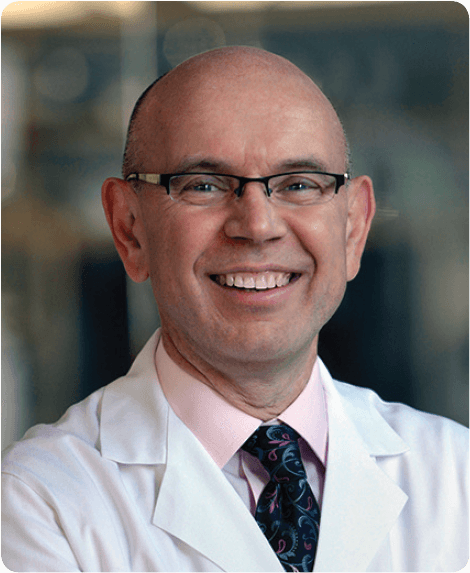
Martin M. Matzuk, M.D., Ph.D.
Dr. Matzuk is the Chair of Pathology and Immunology, and Director of the Center for Drug Discovery at BCM. Dr. Matzuk has trained over 50 trainees in his laboratory over the last 26 years, and many of his trainees now lead independent research labs. Dr. Matzuk also served as associate director of the T32-funded MSTP at BCM for over 15 years. As a member of the National Academy of Science, a Fellow of the National Academy of Inventors, and inventor of a dozen patents, Dr. Matzuk brings an extraordinary level of expertise in basic and translational research in biomedical research and drug development.
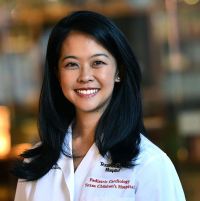
Christina Miyake, M.D., M.S.
Dr. Miyake is an Associate Professor of Pediatrics (Cardiology) and Integrative Physiology. Her research focuses on identifying the genetic and molecular basis of heritable arrhythmia disorders. Her long-term goal is to leverage her clinical, basic, and genetic expertise to advance treatment and improve the quality of care and outcomes among patients with arrhythmia disorders. Dr. Miyake actively collaborates with several CRDD faculty, teaches in two graduate school courses, and (co-)mentors various pre- and postdoctoral trainees.
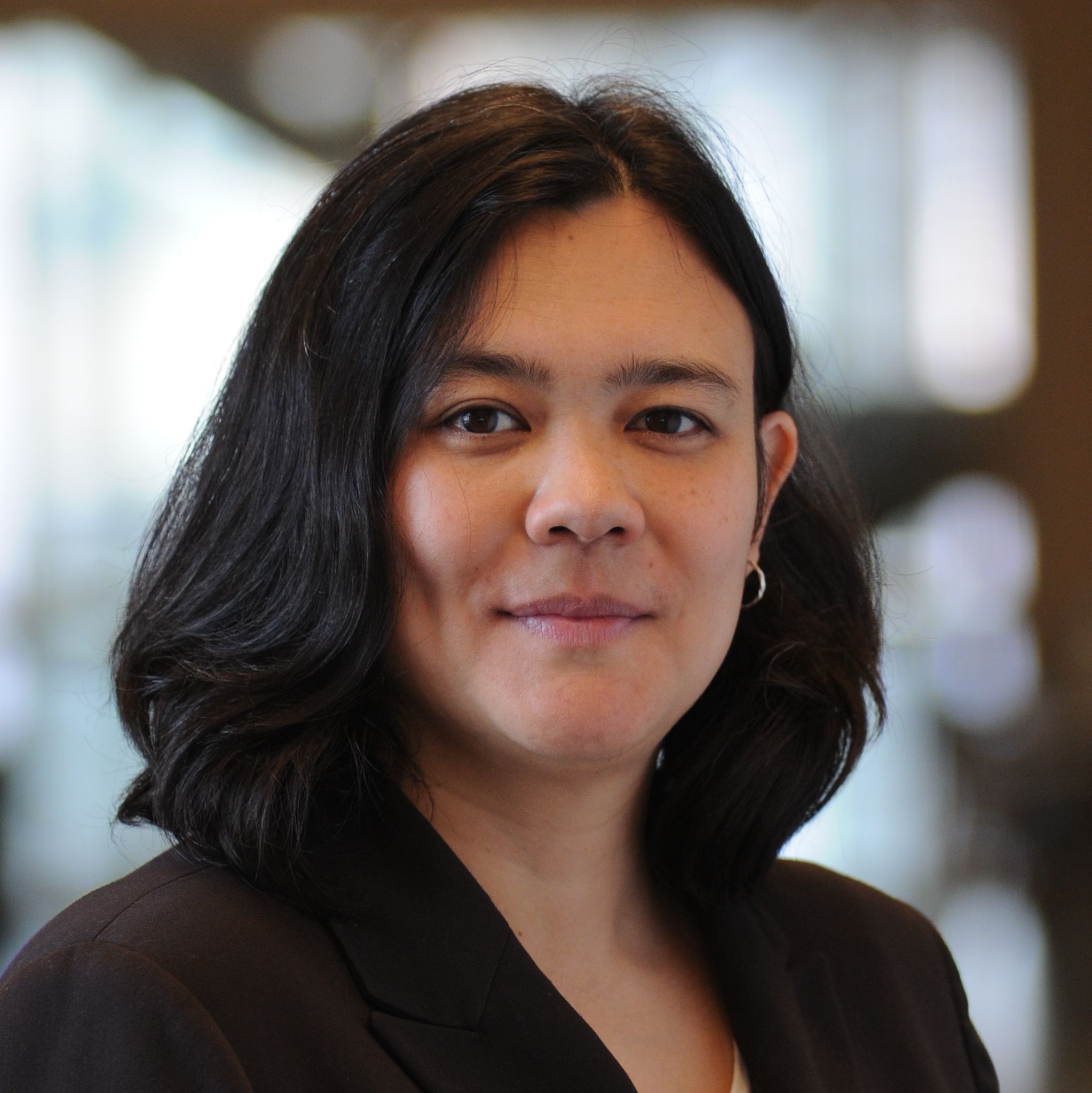
Robia Pautler, Ph.D.
Dr. Pautler's lab utilizes MRI to monitor changes in blood flow to assess the integrity of functional neuronal circuits in mouse models of Alzheimer’s disease. The laboratory studies how oxidative stress, cerebrovascular deficits, and axonal transport deficits are inter-related. They develop novel MRI contrast agents and strategies to image hypoxia in patient-derived xenograft tumor models. The overall goals are to combine these imaging strategies with proteomics, novel treatments, and machine learning to better understand disease etiologies and new MRI-based predictors of disease progression.
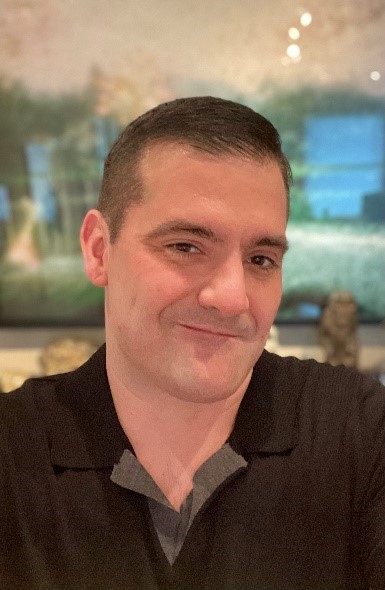
Ross Poché, Ph.D.
Dr. Poché studies combined methylmalonic acidemia and homocystinuria (CblC), the most common inherited disorder of cobalamin (vitamin B12) metabolism that causes severe fetal developmental defects primarily impacting the central nervous system, hematopoietic system, and the heart. The Poché lab uses conditional and null mouse alleles to uncover ventricular non-compaction and septal defects reminiscent of CblC patient congenital heart defects (CHDs). In addition, Dr. Poché directs three and co-directs two graduate school courses, and mentors pre- and postdoctoral trainees in his laboratory.

Md. Abul Hassan Samee, Ph.D.
Dr. Samee is an Assistant Professor of Integrative Physiology. His overarching goal is to model transcriptional regulation, epigenetic modifications, and gene-gene interactions in the human heart. He integrates machine learning, statistics, and comparative genomics to develop robust models for large-scale datasets from cardiovascular studies. He is identifying which molecular interactions in an injured heart should be manipulated to restore heart function. Dr. Samee teaches statistics and machine learning approaches to graduate students at BCM. His laboratory’s interest is in the molecular mechanisms underlying regulatory genomics and the onset of diseases due to aberrations in these processes.

Zheng Sun, Ph.D.
Dr. Sun studies neuroendocrine and epigenomic regulation of metabolism in the context of heart failure, diabetes, and Alzheimer's disease. He is particularly interested in nuclear hormone receptors and circadian clock in glucose and lipid metabolism. He teaches graduate school courses in cardiovascular physiology, and mentors several students, postdocs, and junior faculty in his laboratory.
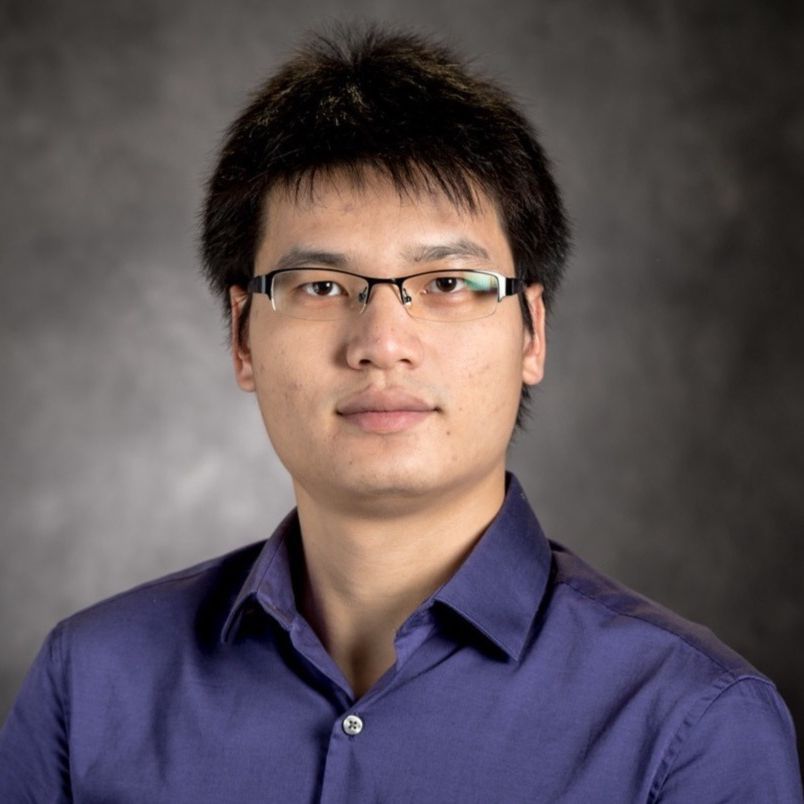
Zhi Tan, Ph.D.
Dr. Tan is an Assistant Professor of Pathology & Immunology, and Biochemistry & Molecular Pharmacology. His research focuses on leveraging cutting-edge computational approaches such as artificial intelligence and physics-based methodologies to accelerate drug discovery process. Dr. Tan’s group has developed multiple computational pipelines for in silico screening of small molecule modulators such as DEL-AI and DEL-VS. Now Dr. Tan’s group is applying these novel computational pipelines to develop chemical probes of protein targets for critical diseases such as cardiovascular diseases.

Mingxing Teng, Ph.D.
Dr. Teng is an Assistant Professor of Pathology & Immunology, and Biochemistry & Molecular Pharmacology. His research is centered on disease targets with promising therapeutic applications. His approach combines an array of disciplines, including medicinal chemistry, chemical biology, and molecular cell biology, with the aim of crafting mechanistically unique and target-specific chemical probes that offer clear pharmacological insights. Accordingly, his research has touched on a broad range of molecular mechanisms, spanning allosteric binders, covalent inhibitors, enzyme activators, protein stabilizers, and protein degraders. His laboratory drives early-stage drug discovery, with a primary focus on deciphering key targets linked to cancer.

Lynn Zechiedrich, Ph.D.
Dr. Zechiedrich studies DNA structure and function, DNA topoisomerases, and antibiotics and anticancer drugs that target them. Her innovation and research excellence are demonstrated by her election as a Fellow of the National Academy of Inventors and Fellow of the American Association for the Advancement of Science. She has mentored >250 scientists in her laboratory including post-bac, graduate, and medical students, postdoctoral and medical fellows, and professors on sabbatical. In 2019, she co-founded and served as co-PD of the Gulf Coast-wide T32-funded Training Program in Antimicrobial Resistance. She received the Barbara and Corbin J. Robertson, Jr. Presidential Award for Excellence in Education, the “highest honor for education given to a faculty member at Baylor College of Medicine.”

Lilei Zhang, M.D., Ph.D.
Dr. Zhang's lab studies the impact of circadian gene regulation on heart health and disease. As a physician-scientist, she is also interested in the genetic basis of inherited cardiac diseases. In the lab, she uses the induced pluripotent stem cell-derived cardiomyocytes platform to perform translational studies aimed at elucidating disease mechanisms and new treatment development. Dr. Zhang is committed to mentoring pre- and postdoctoral trainees.
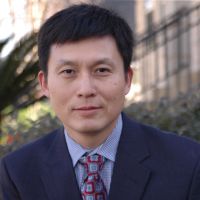
Ming Zhou, Ph.D.
Dr. Zhou's research focuses on membrane-embedded enzymes and ion transporters with the goal of visualizing these proteins in their different functional states and elucidating their mechanisms in terms of the physical and chemical basis of their functions. A typical project starts with structure determination and functional characterization of the target and progresses to testing structure-based hypotheses using approaches tailored to each protein. Target proteins include stearoyl-CoA desaturase-1, diacylglycerol acyltransferase-1, ion transporters and ion channels, all of which have significant physiological relevance to cardiovascular functions, lipid metabolism and blood pressure regulations.








